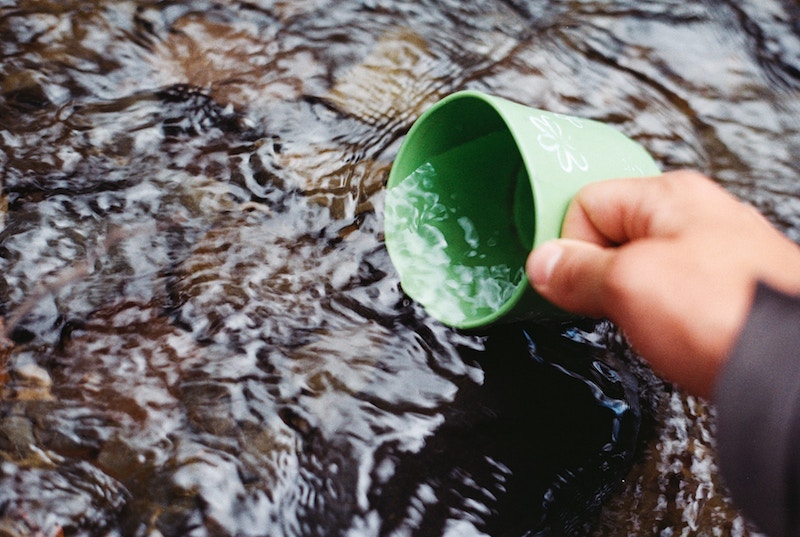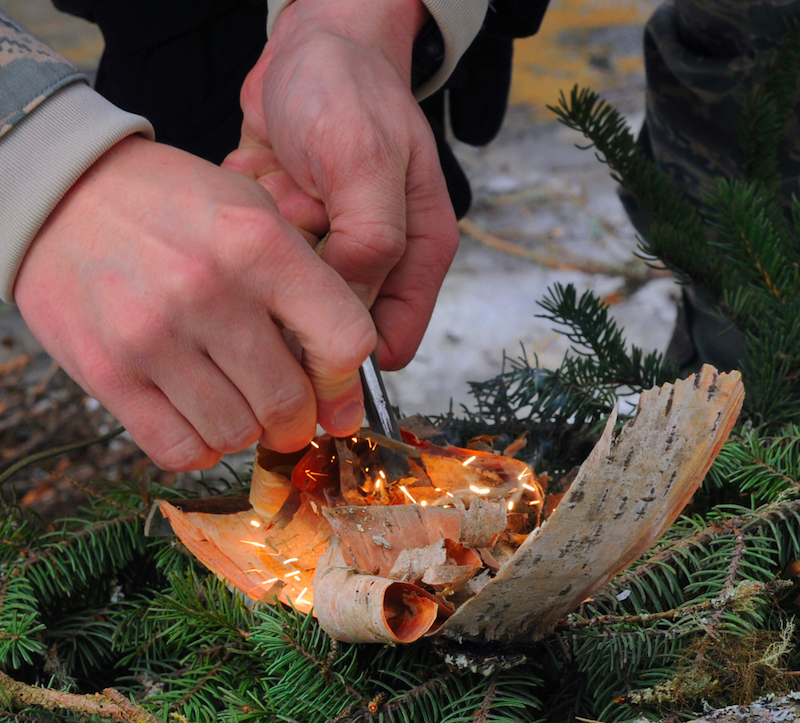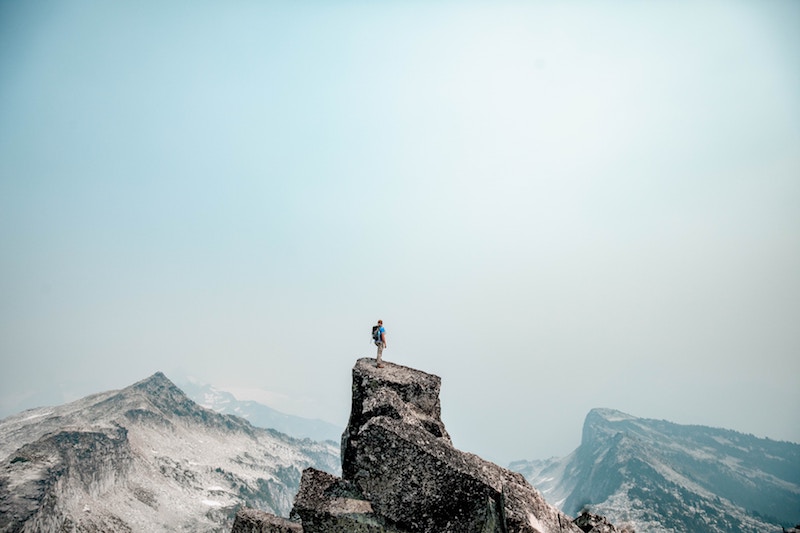Nowadays, it’s pretty tough to get stranded in the wilderness. With mobile phones, data roaming and advanced GPS systems, it’s unlikely you’ll find yourself cut off from civilisation with no means of contact. Nevertheless, being prepared for such a situation can truly be the difference between life and death, should you find yourself in a sticky situation.
It’s easy to be blasé about these things, but nature is a very real threat that should not be underestimated. Heading out on an adventure without the right equipment or survival skills, assuming that there will be someone there to help you out, is a dangerous game, and a risk you shouldn’t be willing to take.
We got together with the guys at Snugpak, who provide essential kit for such a scenario, to find out the top five survival skills that everyone should know before heading out on an adventure.
Survival skills
1: Knowing how to find and purify water

Once you’ve depleted the supply you brought with you, finding water and making it safe to drink will be your number one priority.
Flowing water is your best bet as it will have less chance to harbour bacteria. Look for animal tracks, which may lead to water, and follow the flight path of birds. In the mountains, head for valleys and gulleys where water is likely to be flowing downhill.
If you’re hiking someone really remote, it’s worth having a filtration system on you just in case. If you’ve been camping, make sure you use your camping stove to boil any water before you drink it.
Water purification tablets or pocket filters take up very little room but could be vital in a survival situation if you have no way to boil water. Always have a few with you just in case.
2: Protecting yourself from the elements
![]()
Protection from the elements is vital if you’re going to survive in the wild for any extended period of time. The rule of threes states that you can only survive about three hours in extreme conditions without shelter.
Making the right choices in terms of clothing when you set out for a hike or expedition can go a long way in ensuring you are protected, so do a little research about your destination and the weather you should expect.
Dress accordingly. Ensure you have layers of warm clothing and a proper insulated jacket such as Snugpak’s Torrent jacket, which is built to battle everything nature has to throw at it.
Makeshift shelters are difficult to construct and can waste valuable time and energy. In the end, one heavy downpour can collapse your tree branch shelter in three seconds flat. A lightweight shelter, such as Snugpak’s handy Stasha, are perfect for emergencies and the Stasha can literally fit in your pocket, meaning no matter where you go, you’ll always have protection.
If you’re on a longer expedition, then you’ll have space for a proper tent and a sleeping bag. Snugpak’s Journey tent range should cover what you need.
3: Navigation

Poor navigation may well be the reason you end up stranded, but it’s the one skill that could get you back to safety. Always bring a map and compass with you – your smartphone may have these, but it won’t be much use once the charge runs out. Always bring a backup.
You can also learn a few basic means of navigating without a compass before you set off. It can be fun to learn how to use your surroundings to your advantage, you never know when a skill like that might come in handy.
For example, learn how to use your watch to navigate without a compass. If it’s sunny and you have a watch with hands, or if you know the time and have a pen and paper to draw one, you can always locate south.
Aim the hour hand of the watch at the sun and draw an imaginary line from the centre of the watch to where 12 o’clock sits. You’ll be left with a segment between the hour hand to the imaginary line at 12 o’clock. Divide this segment into two equal parts and the line bisecting the two parts will be pointing south.
For south of the tropics, point 12 o’clock at the sun. North bisects the angle between 12 o’clock and the hour hand.
4: First aid
![]()
What might start off as a simple cut or scrape can quickly become a bigger problem out in the wilderness. Knowing some basic first aid and having the tools to administer the solution to hand will prevent any minor injuries from turning into something more serious.
Even for a daytime hiking trip, you should have a basic first aid kit on you. Don’t just pick one up from the shop, have a nose about inside to make sure it has everything you think you might need.
Stash your first aid kit along with any other essentials in Snugpak’s ResponsePak – that way they’ll always be to hand when you need them.
5: Lighting a fire

Photo: Senior Airman Cynthia Spalding
Any extended period in the wilderness and you’re going to need fire. You’ll need it for any bushcraft you’re going to be doing, as well as for your basic needs like purifying water and keeping warm.
There’s something inherently satisfying about starting a fire and keeping it going, so it’s a great life skill to carry with you. Make sure you have matches, a lighter or a fire steel on your person when you head out for an adventure. You never know when it might come in handy.
To get your fire going, birch bark from dead trees works really well to create an initial flame, before you add smaller dry twigs and, finally, larger dry logs.
Be prepared for survival
The number one survival skill you can have is to be prepared. If you head out for a hiking expedition with nothing on you but your phone, you’re setting yourself up for a disaster. Taking the time and care to pack the right gear and investing in some quality kit will ensure that even if you do run into any trouble along the way, you’ve got the tools to survive.
If you’re worried about having to carry lots of equipment, just make sure you have a good quality lightweight daypack such as Snugpak’s Xocet Backpack, which is designed to fit in all the essentials for a day on the trails, with adjustable shoulder straps for extra comfort. Check out Snugpak’s full range of bushcraft and survival gear to help you plan your next adventure.



